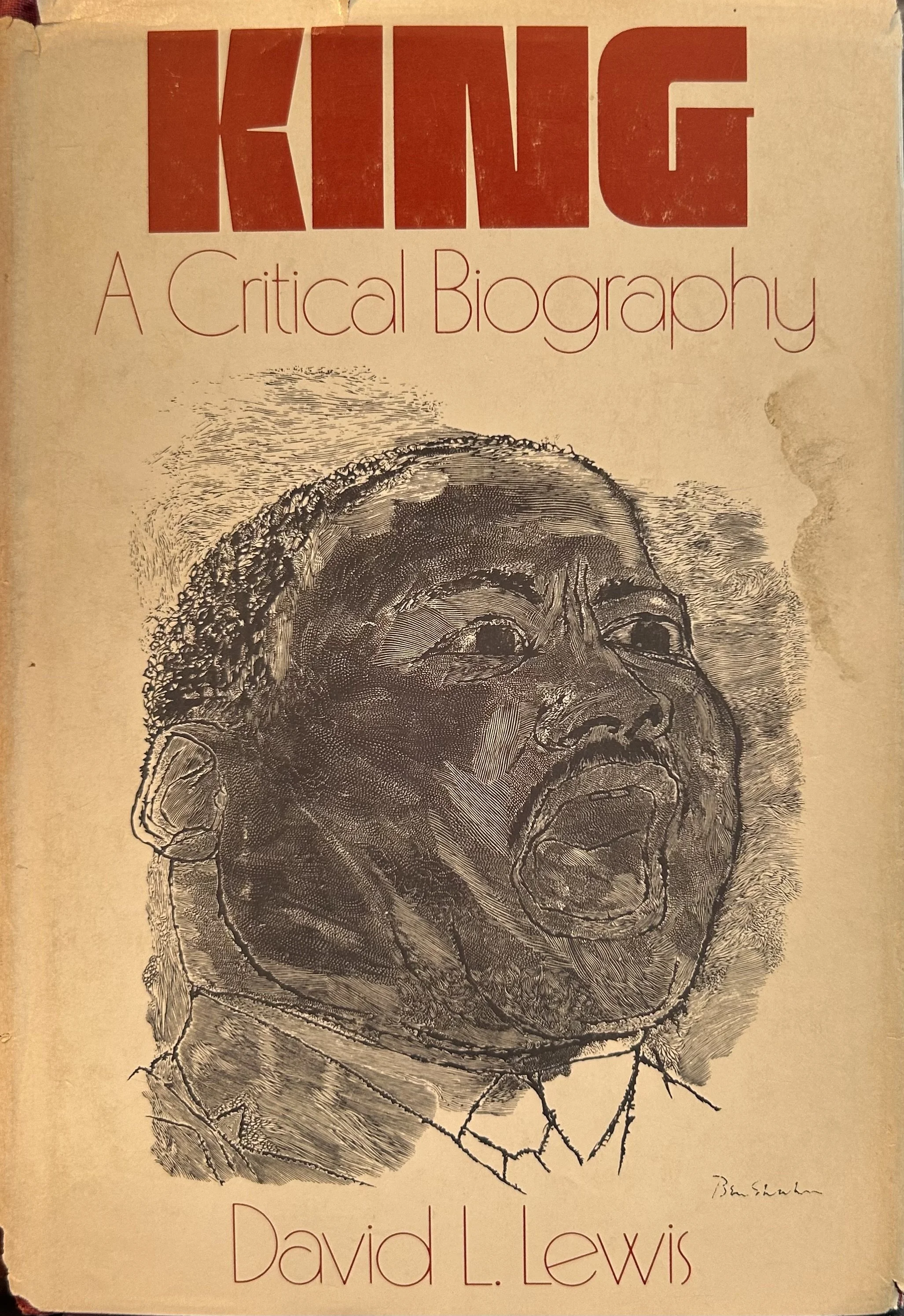King: A Critical Biography (1970)
A young black historian has written the first in-depth, ciritcal biography of Martin Luther King Jr.
David L. Lewis has assesssed Dr. King’s career as a political leader with the thoroughness and detachment that are usually found only in studies of the great political figures of the dim past.
In his lifetime, the real Dr. King was often lost in the center of melodramatic events, and, since his assassination he has become an untouchable legend to millions of people. King: A Critical Biography restores the fallible baptist preacher-turned-political-leader, assesses all his failures (in Albany, Georgia, in Selma, and in Chicago), as well as his triumphs (from the Montgomery Bus Boycott to the Nobel Prize), and, in the end, shows us that this vulnerable human figure was far more impressive than the legendary hero-saint whom black militants of professor Lewis’s generation nicknamed “De Lawd.”
The Martin Luther King who emerges as a man surprised by historical circumstance, a leader partly manufactured by the news media and intimidated by them, groping uncertainly for a viable leadership style and yet, finally, growing to the full mastery of his international renown to such an extent that, ultimately, he came to surprise and intimidate many of his backers and promoters.
The final chapters of this complex life story tantalize us with the portrait of an increasingly disillusioned Martin King deciding not to lead a Poor People’s March on Washington, bewildered by the attention giving to the Black Power exponents, more bewildered by the hostility of Lyndon Johnson, and yet moving haltingly to accept a mandate that no other black leader dared consider—that of a spokesman for the poor of all races and against the Vietnam War.
This is controversial conclusion—many political commentators saw Dr. King as finished, unable to keep up with the younger militants—but professor Lewis makes a convincing case that MLK may well have been on the threshold of his real life’s work when he was assassinated.
Professor Lewis undertook this biography as an exercise in contemporary history, but it became “a passion for comprehension of the true significance of Martin Luther King and through him something of the nitty-gritty reality of blackness—collective and personal—in America.
